Rain eases dust menace
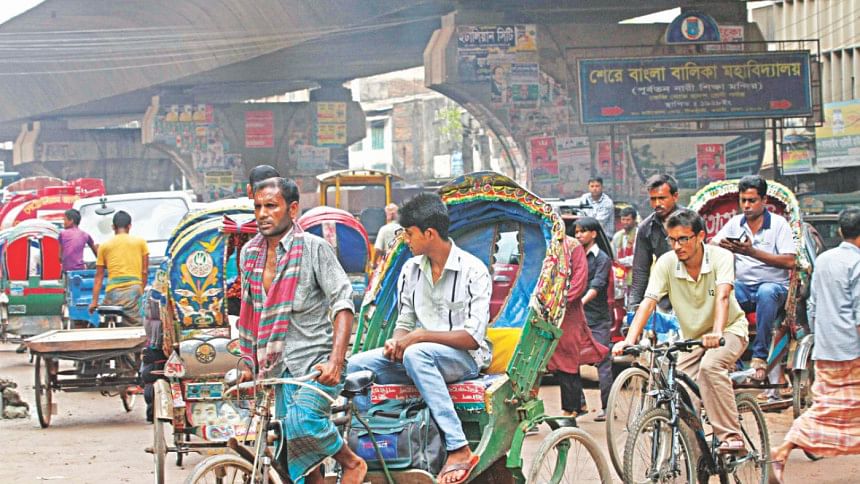
Intermittent showers over the last few days have given the city residents a respite from dust pollution.
Dust concentration in the air usually increases five times during dry season, and dust particles from construction sites worsens the situation, observes Prof Atiqur Rahman, chairman of the respiratory medicine department at Bangabandhu Sheikh Mujib Medical University.
This contributes greatly to the overall air pollution in the capital, which almost doubled in early March this year compared to last year's, show records.
On March 1, the daily air quality index value in the capital was recorded at 331, considered extremely unhealthy, says the Department of Environment (DoE).
As per the standard, an index value up to 50 is considered healthy.
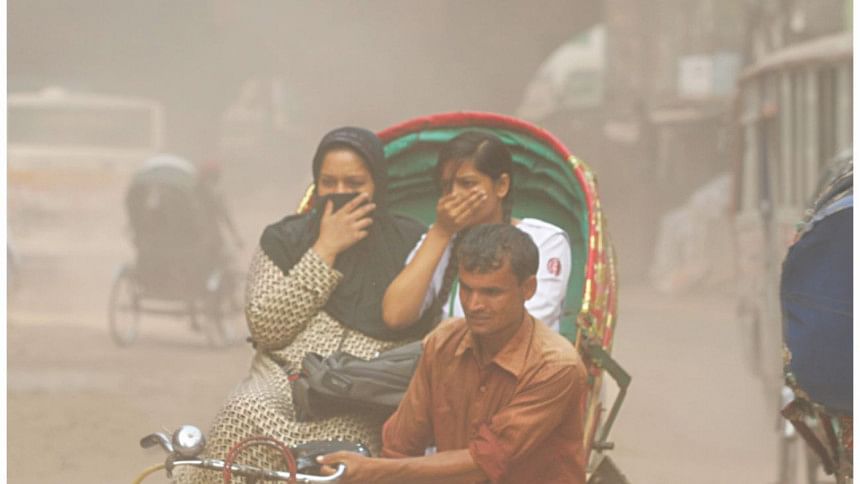
The value was 175 (considered unhealthy) on the same day last year and 223 (regarded as very unhealthy) the year before.
However, the level of air pollution in the capital started falling in the middle of last month, and the index value dropped to 142 on April 4 following intermittent rain.
Prof Atiqur told The Daily Star that if one inhales dust, it can severely damage his respiratory system, and cause various lung diseases as well as viral and bacterial infection.
During visits to different parts of the capital last month, it was found that battered roads and construction sites were major sources of dust particles.
“Dust from road trenches and construction sites smears us all over, and it is difficult to breathe while moving outdoors,” said Moumita Sarkar, a college student and Wari resident, who was passing by the road under Mayor Hanif Flyover near Joy Kali Mandir.
Rasheda Islam, who was taking her fifth-grader son to school along the same road, said, “Dust level in the air is horrendous. And my kid has to inhale it every day while going to school and way back.”
Irteza Ahmed, a Banani resident, said, “We can tolerate the misery caused by road digging, but children and elderly people cannot bear it.”
Builders and agencies implementing development projects are supposed to contain dust with water spray and covers at construction sites in line with environment conservation laws to prevent air pollution from worsening further during winter, said Masud Iqbal Mohammad Shameem, deputy director for air quality management at the DoE.
Talking to this correspondent, DoE Deputy Director Farid Ahmed said it was not possible to enforce the laws properly due to shortage of manpower.
Dhaka South City Corporation is currently doing repair, restoration and improvement of a two-kilometre-long road and footpaths and drains of the same length stretching from Jatrabari roundabout to Joy Kali Mandir.
It is also working on 175km of roads, 192km of drains and 25km of footpaths in all its 57 wards.
On containing dust, DSCC Mayor Mohammad Sayeed Khokon said, “We will take care of it.”
Dhaka North City Corporation is also implementing a project to improve roads, footpaths, drains, and lay storm sewer lines in different areas, including Gulshan, Banani, Baridhara and Uttara.
Uncontrolled dust pollution was all the same in Uttara, said Russell Mahmud, a resident in Sector-5.
DNCC Mayor Annisul Huq said they had set a target of improving 18km of roads, 46km of drains and 27km of footpaths in the current fiscal year.
The DNCC is implementing a Tk 120-crore project for widening roads and reconstructing surface drains in various sectors of Uttara Model Town.
On dust control measures, the mayor said, “Let's see what can be done.”
Apart from dust particles, industrial smog and smoke from vehicles and brick kilns remain other major sources of air pollution.

 For all latest news, follow The Daily Star's Google News channel.
For all latest news, follow The Daily Star's Google News channel. 

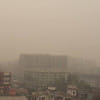


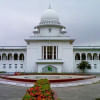
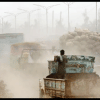


Comments